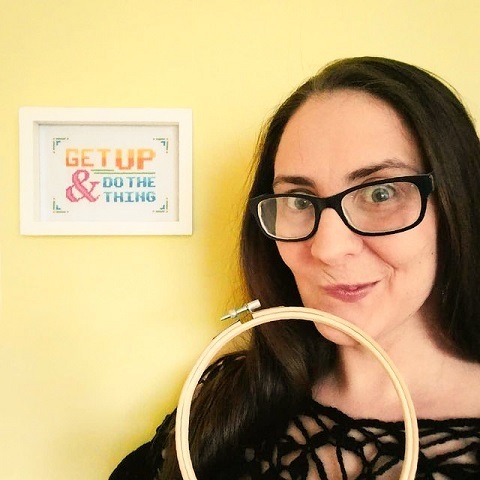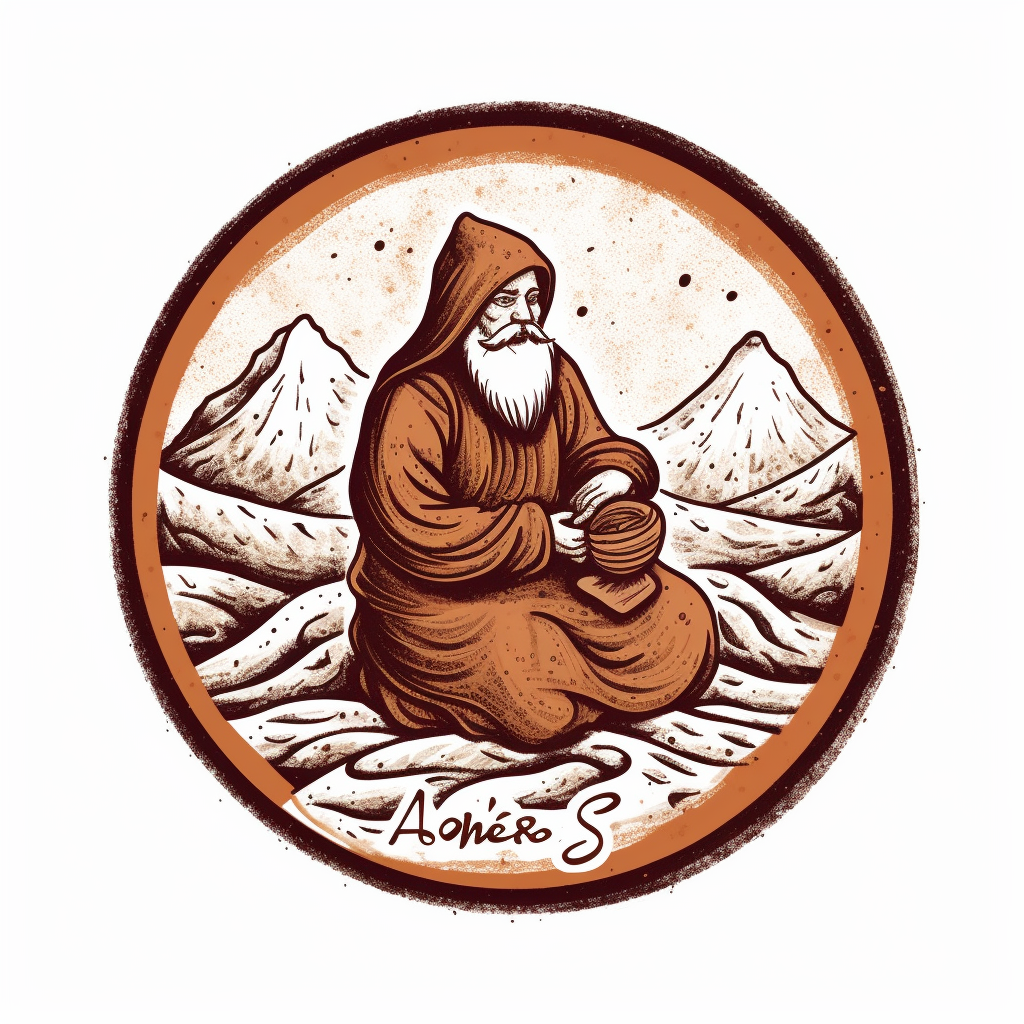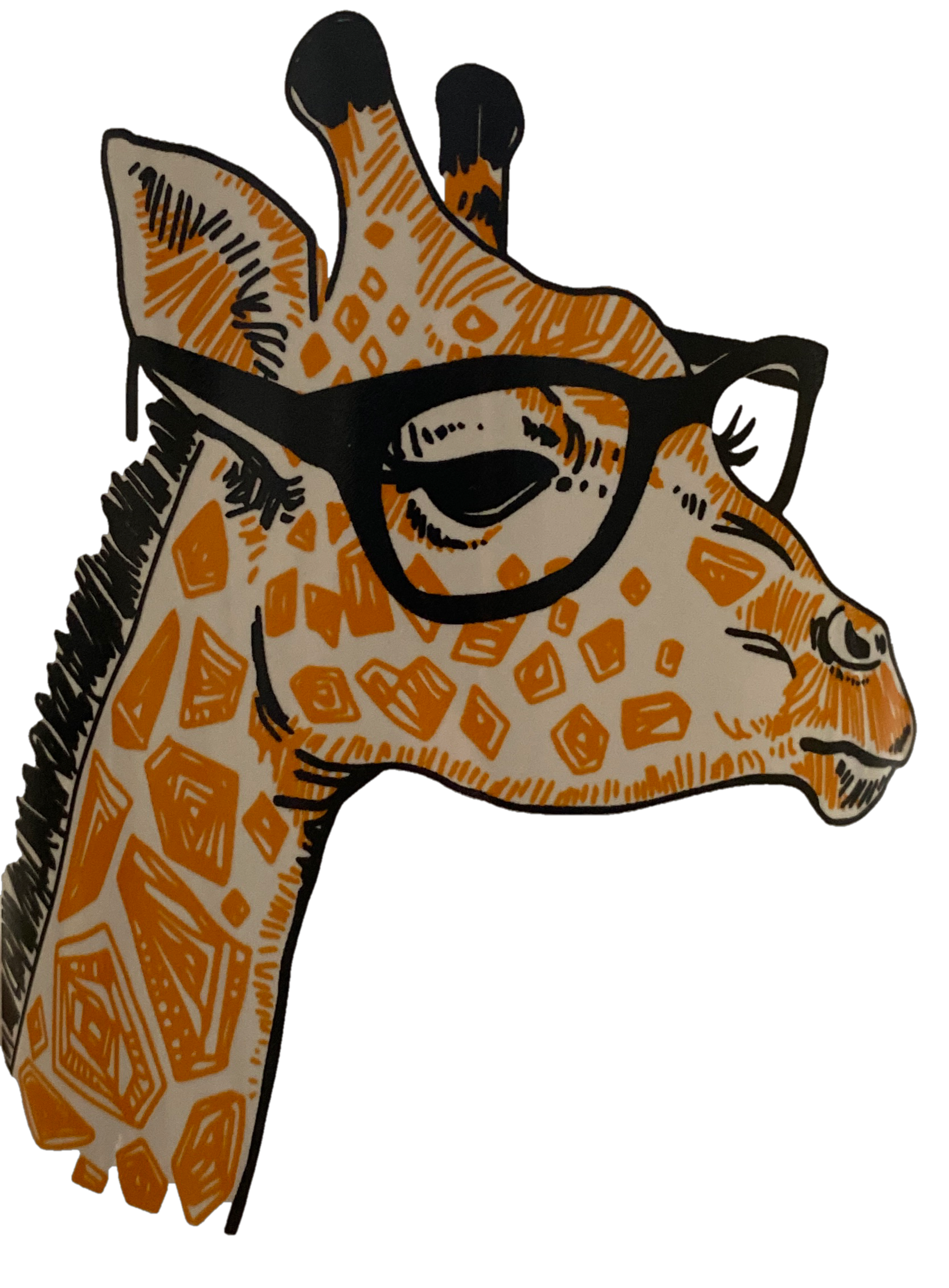What is something like a hobby or skill that you belive almost anybody should give a try, and what makes your suggestion so good compared to other things?
i feel like this is a descent question i guess.
Biking.
Moving under your own power has so many benefits:
- It’s fun
- It’s cheap (or can be, to be fair)
- It’s good for your health
- It’s good for the planet
epic!
I started cycling to commute about a year ago and it’s been such a wonderful thing for my mental and physical health, not to mention my bank account. Beware that you may get sucked down the Not Just Bikes rabbit hole if you’re not careful and end up becoming a walkable/bikable cities advocate as I have.
Hiking.
Getting up amongst the fells and mountains, mostly in isolation from noise and other people. Sure there’s touristy spots where alot head to but there’s still plenty of other, maybe slightly more difficult to hike places if you wanted pure zen.
Navigation is important, don’t just go up with Google maps expecting her to tell you when the next left is. Get some research done, and head out. Don’t overcomplicate things with buying loads of gear that youtubers “recommend”, don’t send it up a 3000ft hike either. A slight ascent, around a lake - start small, find your feet and grow from there.
The best thing I could ever have started for my mental health.
Agreed! Just some quick safety tips for people who might be getting into it:
- Always tell someone what trail you’ll be hiking and when you plan to get back. That way, if you get lost, they’ll notice you’re missing and can call for help on your behalf.
- Always bring water, a physical print-out of the trail map, and a waterproof jacket with you. Yes, even if it’s the middle of summer: weather can change quickly in the mountains, especially if you end up going above the tree line. You don’t want to get caught in freezing rain when you’re just wearing a t shirt and shorts because it was 90 degrees and sunny when you parked at the trailhead!
- If you’re in bear country and you’re hiking alone, tie a bell or some other kind of noisemaker to your backpack. Bears almost never want a fight, they’d much rather avoid you, so make it easy for them by giving them plenty of warning you’re coming.
- Wear shoes with good grip for navigating rocky areas. You don’t need expensive hiking boots, work boots or grippy sneakers should be fine.
Learning a new language. You learn a bit about how languages work, understand other cultures a bit better, usually learn new vocabulary for your native language, understand the relationship between different languages, learn the roots of loan words and generally helps your brain stay healthy, even by only studying the basics.
what lauguage would you recommend for people who only know english?
Italian! Really close and easy to learn. It sounds so pleasant to hear.
Not OP, but I’ve asked myself this as well. I think it depends on where you live and what you want out of your language learning experience. If your goal is to learn something more useful in everyday life and you live in the southern US, Spanish is a great option. If you’re from Canada, French is probably the most useful. German and Mandarin are useful in the business world, but the latter is significantly harder to learn. If you’re not worried about maximizing the utility of what you learn, Norwegian is considered one of the easiest languages for English speakers, and let’s be real, Norway is awesome.
It’s more important that you stick with whatever you choose though. That’s the part I’ve struggled with.
To be honest I’m not a native English speaker so your advice is probably more useful anyway. My husband is British and has studied plenty of languages, finding Swedish and Norwegian definitely the easiest to pick up. Romance languages have more complicated grammar but you’ll find a lot more TV and movies to watch to casually pick up a bit more of the language, which I find useful because I only speak English as well as I do from watching a lot of TV (first with subs) when I was younger.
do you have any swedish tv shows or movies you could recommend? the more the merrier please, or any resources for it at all?
Spanish: it’s the most return per effort.
Bit of an off-the-wall suggestion but I was having real trouble learning other languages mostly due to all the cases (and sometimes genders). So I started learning Esperanto, which admittedly is not the most practical language to know BUT it really helped me understand languages more in general. It’s very simple to learn and easy for an English-speaker to pronounce, as well as having lots of recognisable words (the Esperanto for “yes” is “jes”, which is pronounced “yes” lol)
Now that I’ve gone back to learning German I’m feeling much more confident about learning in general just because I got some of the grammar concepts from a much easier language. Might be worth a look if you’ve struggled before.
Esperanto is reckoned an easy pickup, has speakers globally, and will improve your default in most romance languages. The community is also quite nice, in my experience.
Esperanto seems to be pretty useless to invest so much time into learning it. Wouldn’t be learning “normal” language more beneficial anyway?
Depends on your goals. If you’re going somewhere with one language to spend time, or especially value a particular language, studying that language makes sense. If you want access to a global network of the sort of people who would pick up a conlang intended to be a universal second language, one speakers of can be found anywhere, Esperanto’s your pick.
Mi lernis Esperanton ĉar mi volas havi amikojn en ĉiaj la landoj de la mondo.
I am Polish native that can easily read Ukrainian, English and also some German and I have no clue what that sentence means in Esperanto :D. I can only guess that “lernis” is probably something like “learning” and “mondo” refers to “world” (guess based purely on ‘Le Monde’ - French newspaper). Rest looks like some random Lithuanian stuff. I don’t think knowledge of Esperanto could give me any advantage when traveling across Europe. Idea is cool but to be honest English is the new lingua franca and I think that’s good because it’s easy to pick up and already widespread.
what lauguage would you recommend for people who only know english?
You weren’t the target audience for my initial comment.
“I learned Esperanto because I want to have friends in all the countries of the world.”
Cooking is a very nice, relaxing hobby and you also get to eat some good food!
It’s also very useful and an easy way to impress people.
It’s extremely difficult for me to cook regularly anymore, I just don’t have the energy. When I do choose to, though, I make it a fun event and it’s so satisfying. Put on some music, drink some beers and go to town.
I made Chinese noodles from scratch a while back and while they were SOOOOO GOOD, it was so labor intensive that I would only do it for fun and not to satiate myself lol. They were nice and bouncy noodles, cut a little smaller than chow fun.
noted
Crochet
Pros
- Documented mental health benefits
- Cheap to start, can learn from online tutorials
- Easier than knitting
- Make cool toys, clothes, home accessories, whatever you want
- Get to smush yarn into your face on a regular basis
Cons
- Fibre crafts gateway drug
I like crochet, even though I’m really bad at it. It’s very peaceful (unless I’m counting stitches, then it’s a constant fight against my ADHD), and I have a bunch of cool scarves now.
I think that’s part of why I suggested it over knitting, you can do the complex projects with the counting and the actual effort OR you can just mindlessly crochet a long scarf or a bunch of cotton washclothes and end up with something practical.
Knitting is a lot slower and also less suitable for some of those small projects like washcloths so unless it’s basic garter stitch you pretty much know you’re gonna have to concentrate at least a little bit.
My girlfriend does both, and it’s definitely amazing how much faster crochet is! Like, “oh, here’s a giant amigurumi dragon I whipped up in a week,” or “here’s a poncho made over the weekend for our vacation,” with crochet, versus “I have to frog 4 weeks of work because I slipped a stitch and didn’t notice.” Granted, she’s much better at crochet (by her admission), but knitting seems tough. Love the stuff you can make with it though.
Haha, yep that sounds about right! I do love being able to do both, some things you can do with knitting you just can’t do in crochet especially if you need to create a nice drapey fabric. Being bistitchual is the best of both worlds!
Agreed! Crochet is a great hobby. And if you have ADHD like me, you can do it while doing other things too.
Any online tutorial that could help me get started you recommend?
Well, I don’t want to be That Person but technically I made a (long) video for total crochet beginners that I know quite a few people have used to great success. It’s frontloaded with theory though and more for people like me who learn by understanding the “why” of what they’re doing.
If you prefer to do it in shorter chunks or without all the tedious theory, which let’s face it most people do, I’ve heard really good things about this Bella Coco series which has, um, slightly more views than mine 😅
There’s a fairly new (aren’t they all) crochet community over at !crochet@lemmy.ca (direct link) that seems very nice so far, I’m sure they’d love to help with your first attempts too!
Mindfulness and Breathwork! Mindfulness is an incredibly valuable practice that can be a game changer for mental health and anxiety. Breathwork goes a long way as a fundamental technique.
There are a variety of free tier apps like InsightTimer that have beginner courses in meditation. Working to create space in your life between things like work and family give you breathing room. Starting to live in the moment allows you to step out of the anxiety of the past and worry of the future.
I’m not saying mindfulness can’t have serious benefits. However, I would caution anyone who’s into it to read the book McMindfulness. A lot of the “science” behind it doesn’t stand up to scrutiny, there can be genuine drawbacks to it, and it’s often used in unethical ways–like to make CEOs of ruthless companies more able to shove aside their feelings of guilt, or to sharpen the minds of soldiers for killing.
Interesting suggestion, I’ll have a look over the book. I mainly was referring to practicing meditation, doing things like gratitude lists, trying to maximize peace in my life on a daily basis versus maybe a lot of what other mindfulness practices teach. I will check out that book though, thanks for an alternate perspective.
Wait, there’s people making money off of this shit‽ Like, my therapist and I work on mindfulness, but for me that just means being present in my body (not escaping into books/games/videos), considering my wants and needs, and listening to my emotions (even when they’re unpleasant). Is there some other definition? I like talking to people about it, but I’ll have to be more specific about what I mean in the future if there’s someone out there selling something.
I mean, look up “mindfulness” on Amazon. There are a million books for sale out there. And people like John Kabat-Zinn have made plenty of money selling mindfulness to everyone from mental health clinics to the military.
Mindfulness in this context is generally just defined as paying attention to the present moment. But that’s ethically neutral and can be used to, for example, make the horrors of late-stage capitalism more bearable for its subjects, or to help soldiers focus on the act of killing rather than the horror of it.
Bleh, I like my version better. I feel a more diverse range of emotions, and I feel those feelings more, not less. I used to be able to ignore things that made me unhappy or were actively hurtful/harmful, and now I can’t really do that (except for trivial things). I’m now aware that I feel progressively more miserable if I don’t take some sort of action to deal with my feelings. I’m coming at this from a place of intense childhood trauma, so that may explain the difference. I had to do a bunch of EMDR and other very unpleasant things to reach the point where I could stand to live in my own head. That’s probably where the disconnect between my mindfulness and the commercial self-help mindfulness comes from.
FWIW, this was a new issue to me. I’ve only encountered mindfulness practices like you’ve described.
Gratitude journaling, breathwork, meditation. Pulling yourself into the present to avoid things like lingering anxieties or future worries. I combine this with exercise and really prioritizing sleep to good effect for me.
I think there’s always gurus trying to sell something but like most things there is no easy roads or short cuts. And it’s interesting to hear others perspectives.
Good luck on your mindfulness journey. Do you have any practices that work for you?
I do, but a lot of it is focused on dealing with fairly intense childhood trauma. Mindfulness for me might mean being aware that I’m feeling worse, until I help myself. Small techniques are deep breathing (4 seconds in, 4 hold, 4 out, 4 hold), going to my comfort places and trying to pick out as many details as possible (I’m lucky and have a backyard with a pond and a lot of birds), and in extreme cases, I’ll smell tea leaves. That last one is more about getting out of a traumatic disassociation rather than getting into a state of mindfulness, but disassociation and mindfulness are mutually exclusive, so it’s sort of a mindfulness thing ¯\\_(ツ)_/¯
Like, before I worked on my mindfulness, I’d hide from my problems for months or years. Hell, I’d be so zonked out of the world that I wouldn’t know I needed to use the bathroom until I started to feel physical pain. I could numb and hide my feelings so well that I just ghosted through life. Now, I can’t do that and I don’t want to. Things hurt, things are stressful, things are miserable. Things are also joyful and happy, or are deep and meaningful. I get to have the full gamut, rather than just snark, sarcasm, and nothing. It’s probably not comparable, and on further reflection I’m glad that most people will never have to go through the process I went through. Trauma sucks and the recovery sucks too.
Sewing is useful and satisfying. I’d like to say it’s also easy but I have never figured it out myself (which doesn’t say much, anything that involves using my hands is… questionable)
Juggling!
-
It can be done dirt cheap
-
It’s really therapeutic
-
You can practice it almost anywhere but especially alone in your room
-
If you git gud at it, you have a cool skill to show off
Hah, I tried. Couldn’t get past tossing one ball from hand to hand. Good exercise, though, with all the chasing after and bending over.
-
Some form of metal working, and specifically machining. I really enjoy machining, and I’ve been able to make some genuinely useful things. The tools are actually really quiet and stateful, unlike woodworking power tools which SCREAM at you like horrible demons. Seeing people look at their first top, or pen, or miniature cannon is great. Plus, things made in metal are at least slightly shiny.
For example, you could make dumbbell handles and plates like this: a photo of dumbbell handles and weight plates
Or a metal yarn winder like this: a photo of an all-metal yarn winder
The major downside is that it’s not cheap (not as expensive as boats, possibly more expensive than photography), and it requires at least a bit of space that you wouldn’t mind getting dirty. Luckily, I feel like makerspaces are starting to have more and more metalworking equipment.
you make some really good points!
- making bread
- brewing beer (or making wine or cider, as one prefers)
- repair sewing
I suspect I’d feel the same about welding or smithing, but I haven’t tried those (yet).
My goal is to at least once in my life bake a loaf of bread.
At work, I have a reputation for being the guy who never shuts up about trying to get new people into scuba diving. If there are 2 or more divers at the lunch table I honestly feel a little bad for everybody else. The cost of getting trained and renting or buying all your gear can scare people away, but I would at least strongly recommend that anybody on an island vacation or cruise at least try a “discover Scuba” class. You’ll learn everything you need to know to not die by watching a quick video, and working in a pool, then you get to go have an amazing dive in the ocean with an instructor.
Self-hosting. You learn how to use Linux, security, managing services, and after all that you have your own little ship on the internet. After all that you gain a massive understanding of how the internet and the technology you use daily work and run (to an extent).
Public Speaking
You never know when you’ll have to say something in front of a crowd.
that is true.
Playing an instrument. The challenge of playing successfully a melody will give you more reward than listening to a good one.
Indoor gardening/hydroponics. Even in the smallest flat you can grow your own salad, peppers, radish, tomatoes, microgreens, etc.
Like a tiny stardew valley at home.


















